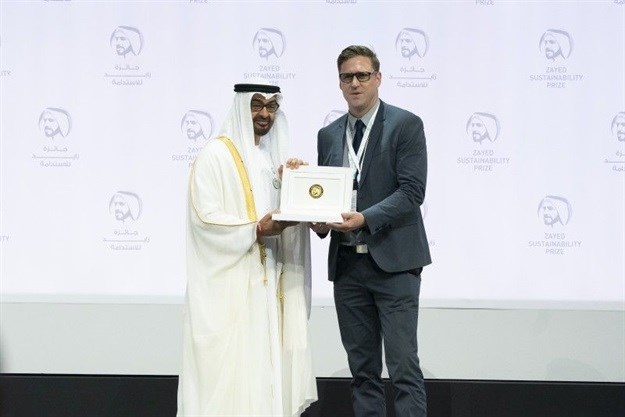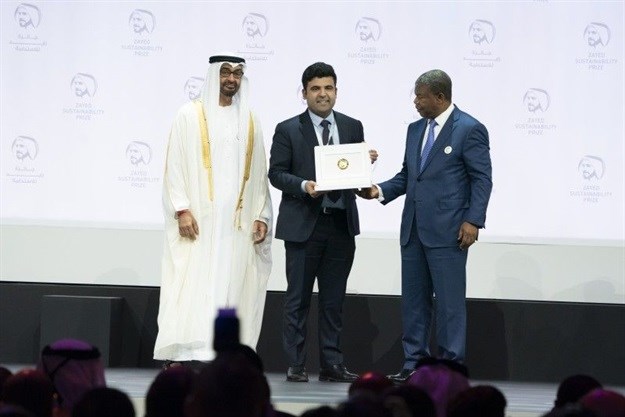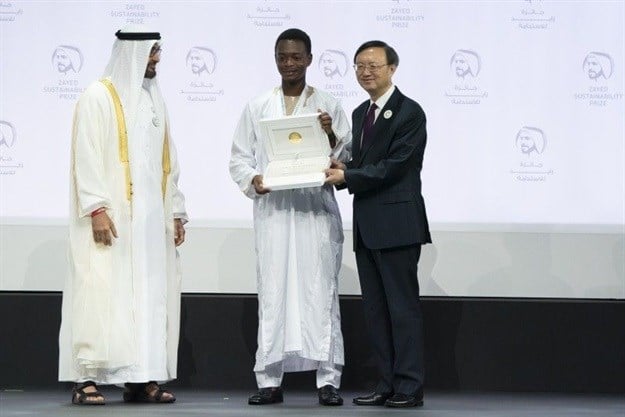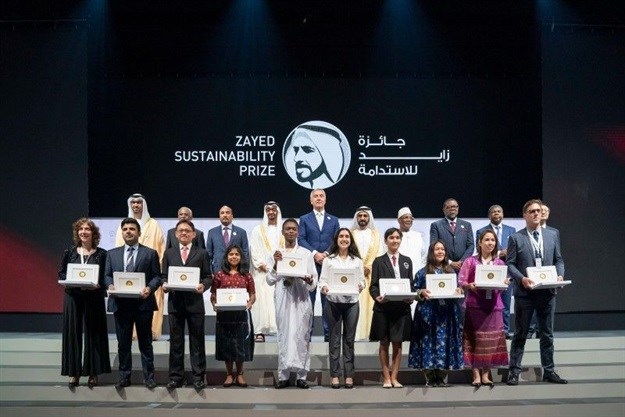Excelling at this year's Zayed Sustainability Prize annual awards ceremony, African innovators took the top prize in three out of five categories including Energy, Food and Global High Schools.
The event honoured leaders whose work and spirit of enterprise has resulted in working solutions across communities around the world. With over 2,000 submissions from 130 countries, the highest number of applications came from Africa, which is a testament to the growing role African innovators are playing in global innovation. Their technologies addressed real-life social, environmental, health and economic challenges, as well as reflected the aspirations of a new generation of innovators within a continent that has one of the world’s biggest youth populations.
In congratulating the winners, Dr Lamya Fawwaz, director of the Zayed Sustainability Prize, said: “In a world of changing climate, and a rapidly growing population, developing sustainable solutions to meet rising food demand and provide energy access to people in remote areas is a global priority. These worthy winners among many strong candidates, are perfect examples of how to meet the prize’s criteria of being innovative, inspirational and offering tangible impact within communities.”
The winners
Picking up the prize in the Food category was Tanzania’s Sanku for its flour fortification machines that equip and incentivise small-scale, local millers to fortify their flour with life-saving nutrients. Sanku has currently installed 150 fortification machines in flour mills across five East African countries, impacting the lives of almost one million people daily by providing them safer and healthier food sources. Commenting on the win, Felix Brooks-Church, co-founder and CEO of Sanku, said: “16,000 children die every day from illnesses that are absolutely preventable. We have a solution, and so we have the duty to keep fighting in order to reduce that number to zero.”

Food winner Felix Brooks-Church, cofounder and CEO of Sanku
The winner in the Energy category was BBOXX, which has developed a plug-and-play solar device offering users an on-grid experience in an off-grid setting - a truly transformative solution that is changing hundreds of thousands of lives in Africa. The company has so far installed over 150,000 solar systems across 35 countries many of which are in Africa and has connected over 675,000 people globally with clean, affordable energy solutions. Mansoor Hamayun, CEO and co-founder of BBOXX, commented on winning the prize saying: “We are passionate about harnessing pioneering data and technology to power economic growth and transform the lives of underserved communities living off-grid. Winning this award is an important milestone along our journey.”

Energy winner Mansoor Hamayun, CEO and cofounder of BBOXX
Within the Global High Schools category, the African Leadership Academy in South Africa won for its proposed creation of a water treatment machine called ‘The Living Machine’; a device they designed to treat greywater for use in greenhouses. Their proposal also included the implementation of solar power to reduce electricity costs; savings that will be used to fund additional renewable energy projects, waste management and best agriculture practices. Commenting on the win, Jesse Forrester, project lead of African Leadership Academy’s Living Machine Project, said: “I am immensely pleased with the announcement. It is quite humbling for us as a team and even more so as an institution. Being recognised as the winners of the Global High Schools category, for Sub-Saharan Africa, is a testament to the belief that we are stronger together.”

Global High Schools winner for Africa, Africa Leadership Academy Student
In the other categories, ECOSOFTT was awarded in the Water category for its decentralised community water management standard, which outlines a set of solutions for source management, water use, water recycling and discharge. In the Health category, ‘We Care Solar’ received the award for its Solar Suitcase, a portable maternity device to assist with childbirth and related medical services in off-grid rural areas.
The other five recipients of the 2019 Global High Schools category were:
- The Impact School (Guatemala), representing The Americas;
- Gymnasium Goethe (Tajikistan), representing Europe & Central Asia;
- American School of Dubai (UAE), representing the Middle East and North Africa region;
- SECMOL (India), representing South Asia; and
- Muntinlupa National High School (The Philippines), representing East Asia Pacific.
Winners of each category receive $600,000 in prize funds to enhance and develop their existing solution. In the Global High Schools category, six schools from six world regions receive up to $100,000 each, to create or enhance a school or local community project.
To date, the prizes’ 66 winners have directly and indirectly impacted the lives of over 318 million people.



























